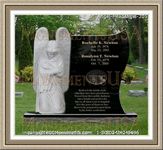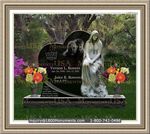|
Rotines To Learn At Jewish Funeral Rites
A traditional Jewish funeral has certain elements to it. The main aim of these rituals is to honor the dead person, while being sensitive to his surviving family members. Generally, the specific customs carried out depends on the community the deceased person hailed from. But there are general customs that are observed at most burials.
The burial should take place within twenty four hours after death. However, there are some instances that may prevent this from happening. If close family members of the deceased are based in far away location, the burial will have to be delayed until the relatives have arrived. However, the funeral should generally be carried out as soon as possible.
Open caskets are not allowed at memorial services. The casket chosen should be simple and totally biodegradable. This means that it should be made purely out of wood. Even nails are not allowed, as they are metallic and can't decompose.
For the process of decomposition to take place naturally, embalming is not allowed. However, since Jewish customs are subject to local laws, it may be necessary to have the body embalmed. This is so as to satisfy the public health regulations set by the local council.
The memorial service should be completed within a few minutes. Flowers are not allowed, though some Rabbi's may make exceptions. Mourners are not allowed to greet the attendees until after the ceremony has been completed. Mourners accompany the deceased to their final resting place.
When leaving the graveside, attendees at a Jewish funeral form a double line facing each other. The mourners pass in the middle and receive consolation messages from others. Any kind words of comfort are offered at this time. Mourners may symbolically wash their hands before leaving the cemetery as a sign of cleansing.
|
|



























